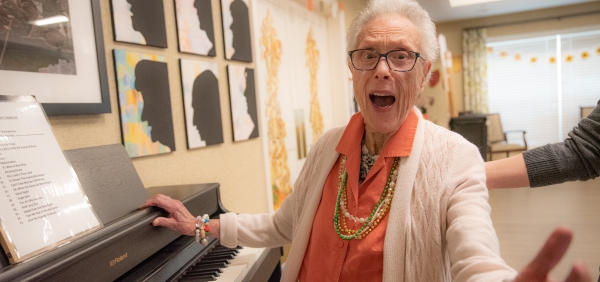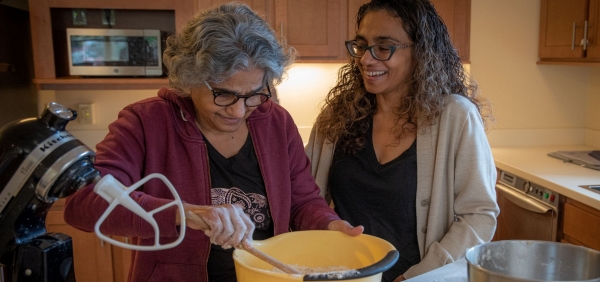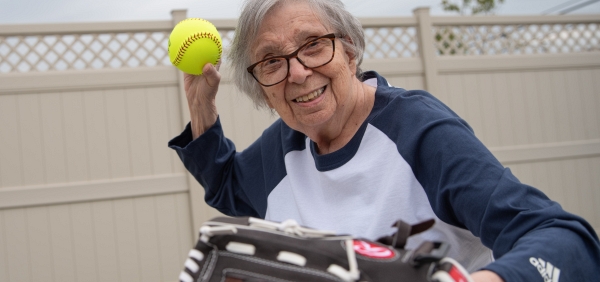Helpful Tips to Transition a Loved One to a Memory Care Community

Best Tips to Transition a Loved One or Aging Parent(s) to Memory Care
Moving a loved one to Memory Care is a highly emotional process. Even if the person with dementia understands it’s for the best, they fear what this move signifies, and grieve for what they’re leaving behind. Caregivers often second-guess themselves, racked by mixed emotions. They’re reassured by thoughts that they acted at the right time, and their loved one will be in a good place. But they also may experience guilt and the inevitable feeling they might have done more. And they generally feel relief that they can pass their responsibilities to others with the knowledge that their loved one will receive the proper care as their condition progresses.
These feelings are normal. Many family caregivers arrive at this decision having exhausted their own capabilities, knowing they need to focus on their self-care. Planning this transition for your loved one can be challenging, but over time, the whole family will benefit.
Advocacy Makes the Difference
If you’re caring for aging parents or another older loved one with memory loss, it can be tremendously reassuring to turn to someone else who has their best interests at heart. In an Artis Senior LIving community, special members of our Memory Care team serve an important role in advocating for residents and communicating with families.
Known as Directors of The Artis Way Experience, they’ll help you plan a smooth transition for your loved one. They focus on who the person is at heart: their likes, dislikes, preferences and needs, so they feel at home right away. As your loved one settles in, our Directors will seek out opportunities to incorporate meaningful experiences with a personalized program of activities and celebrations. They’ll be encouraged to engage in the community in ways that honor their uniqueness, and may stave off further decline.
Helpful tips for a smooth transition:
Before Moving Day
Visit the community with family members well before moving day. If your loved one is able to come along, allow them to explore the grounds, see the amenities, meet their caregivers, and interact with some residents. Making a series of visits so they become comfortable with the community will greatly ease their transition. Depending on how advanced their cognitive decline is, you could frame these as friendly visits instead of preparation for a move.
Without your loved one in tow, talk to the staff who’ll be providing dementia care. You know your family member best, so you’ll be able to discuss the scenarios you anticipate in the days leading up to the move.
Ask the staff what to say or do in these different scenarios. You may need a short script or list of responses for yourself and other family members to fall back on if your loved one gets upset, needs reassurance, or calls with complaints. Many families benefit from a plan for moving day and the weeks after: when and how long to visit, what to do if their loved one seems troubled, and so on.
During your conversation with Memory Care staff, come up with a plan of action for moving day itself. Decide who’ll bring your loved one in, help unpack, and how long they’ll stay. Keep it to one or two people, and don’t hover or stay too long, as this will distract your loved one from their new surroundings. Find out about a daytime activity they would enjoy, and plan to move on a day when it’s being held. It will give them something to do after you leave.
Make sure the Memory Care team members know your loved one’s routines so they can develop a daily schedule to help them feel comfortable right away. Share likes, dislikes, preferences, personality, hobbies, special needs and favorite foods. Once the staff gets to know your loved one, they’ll introduce them to other people with similar interests.
If your loved one understands they’re moving to a Memory Care community, help them manage their emotions. It’s natural they’d be scared about their cognitive decline, moving to a new place, and making new friends. You and other family members can do a lot to calm any anxieties or quell any misconceptions for a smooth transition.
Plan to surround your loved one with their possessions in their new home. They won’t be able to take much furniture with them, but photos, books, artwork, and bedding can add a sense of familiarity and comfort.
People with Alzheimer’s disease or other forms of dementia can become upset when their possessions are moved or taken away, so judge for yourself the best time for packing, whether it’s while they’re asleep or out of the house. If possible, photograph how they have their belongings arranged at home so you can replicate it in their new living space. Ask whether the community has a list of do’s and don’ts for what they allow residents to bring with them.
Moving Day
Move and set up your loved one’s new living space before they get there. Create a homey feeling by incorporating as much of their own furniture as possible. This is the time to hang artwork and drapes, place photographs and décor, and make up their bed with their favorite pillows and blankets. Use the photograph of their belongings in their old home to arrange things as they like it. Find out whether you can place a family photo or other item outside to personalize and help them recognize their door.
Be prepared for the moving day to be tough. You, your loved one, and your family members will ride a roller coaster of emotions. Be empathetic and patient with your loved one, and acknowledge how they’re feeling. But stay firm and stick to the script you’ve prepared to get you through the day.
Moving day is not a time for a large group of family members to be present. Limit the number to one or two people. This allows your loved one to find their footing by meeting their neighbors, going for a meal, and taking part in activities, so they’re less emotional about spending the night in a new place.
Know the plan for the evening and overnight. Expect your loved one to call you if they have difficulty sleeping or want to come home. Calm them, tell them you’ll call right back, and then call the community for help. Caregivers in Memory Care communities are trained to handle situations with compassion and stay for as long as they’re needed.
Settling In
It will take a few weeks or months for your loved one to settle in and make friends. Be patient with this journey, as things will change. They may tell you they’re happy one moment, and then lonely the next. They may decide they don’t like the food and demand to go home. Remember dementia affects short-term memory, so they’ll eventually accept their new home. It will be hard for you, but know these moments will pass, and you’ll all get through them.
Trust the staff and make them your partners in care as well as day-to-day routines. For example, if your loved one says they’re too shy to go to the dining room on their own or forgot about an activity they were planning to go to, let a staff member know. See whether someone can knock on their door and offer reminders or other support.
Ask the Memory Care community to communicate how your loved one is settling in. You may want to be called at points throughout the day or take a single call at the end of the day. Find out whether they’re able to send you photos via text or email so you can get a glimpse of how your loved one is doing.
Limit your visits for the first few weeks if it will help your loved one become more immersed in community life. Sometimes when a family member visits, they’ll gravitate to them instead of engaging with community activities or new friends.
Real Resident Stories
We’ve helped many others navigate this journey before you. Families and caregivers who’ve chosen Artis Senior Living love to share stories about our communities and what it’s like to live The Artis Way. You can read their real stories here.
Our specialized Memory Care Assisted Living residences are offered at 27 Artis communities in 11 states throughout the nation. A world-class approach in an intentionally designed setting ensures people with dementia have everything they need to thrive physically, emotionally and mentally. If you’re wondering how to transition aging parents to Memory Care, we’re here to provide compassionate guidance for you and your family. Contact us today.



